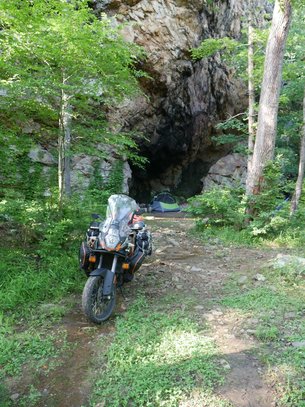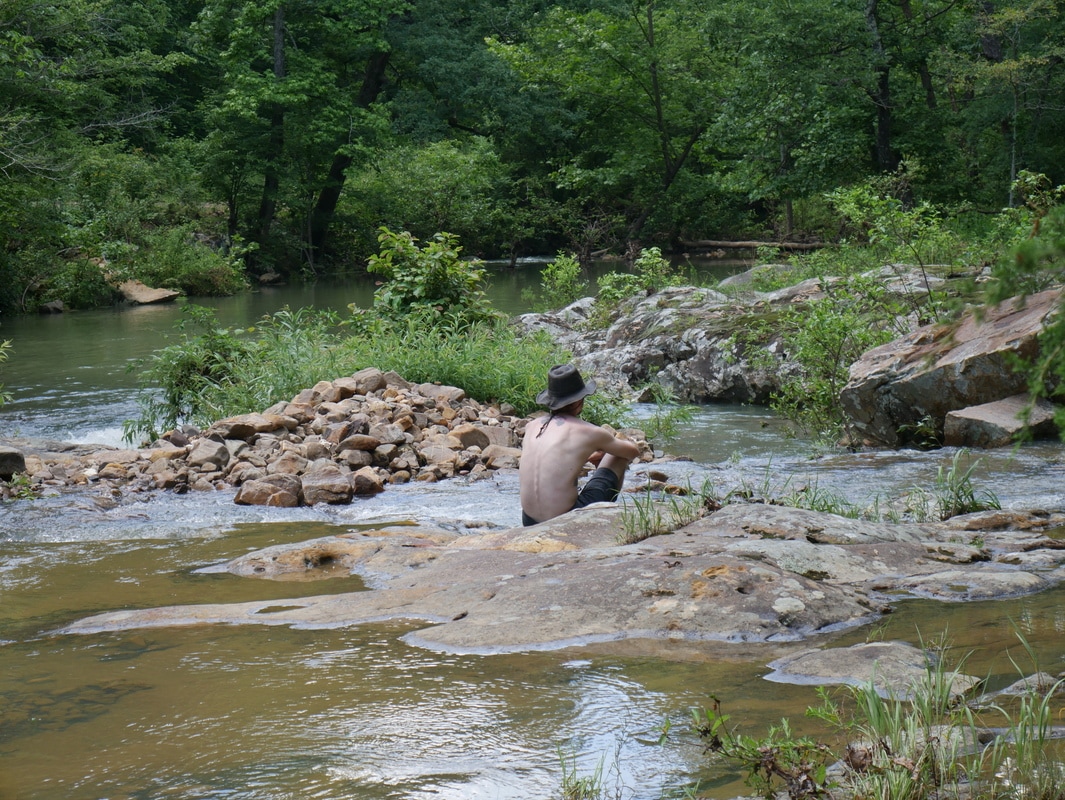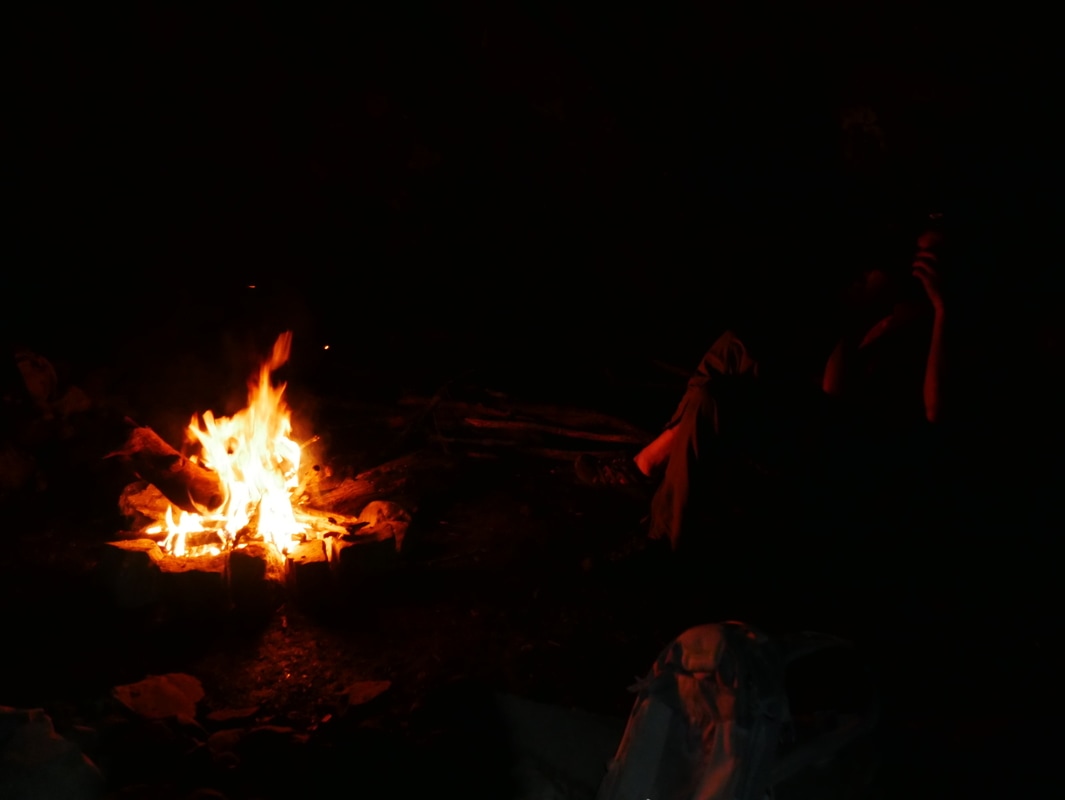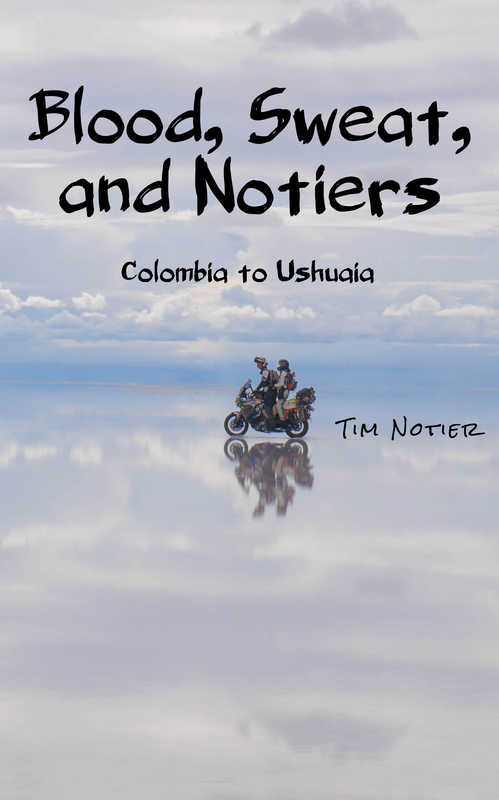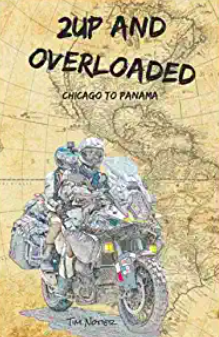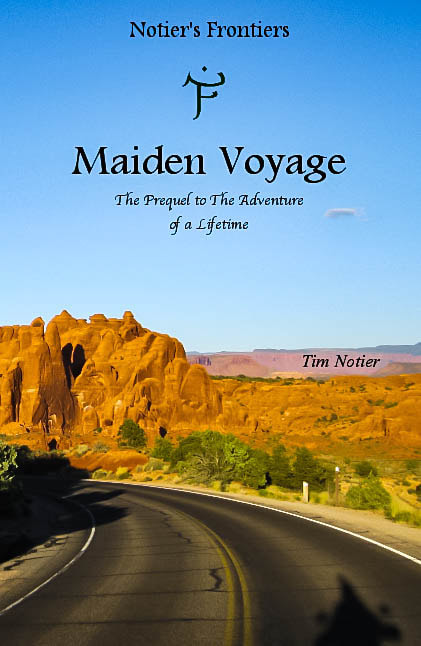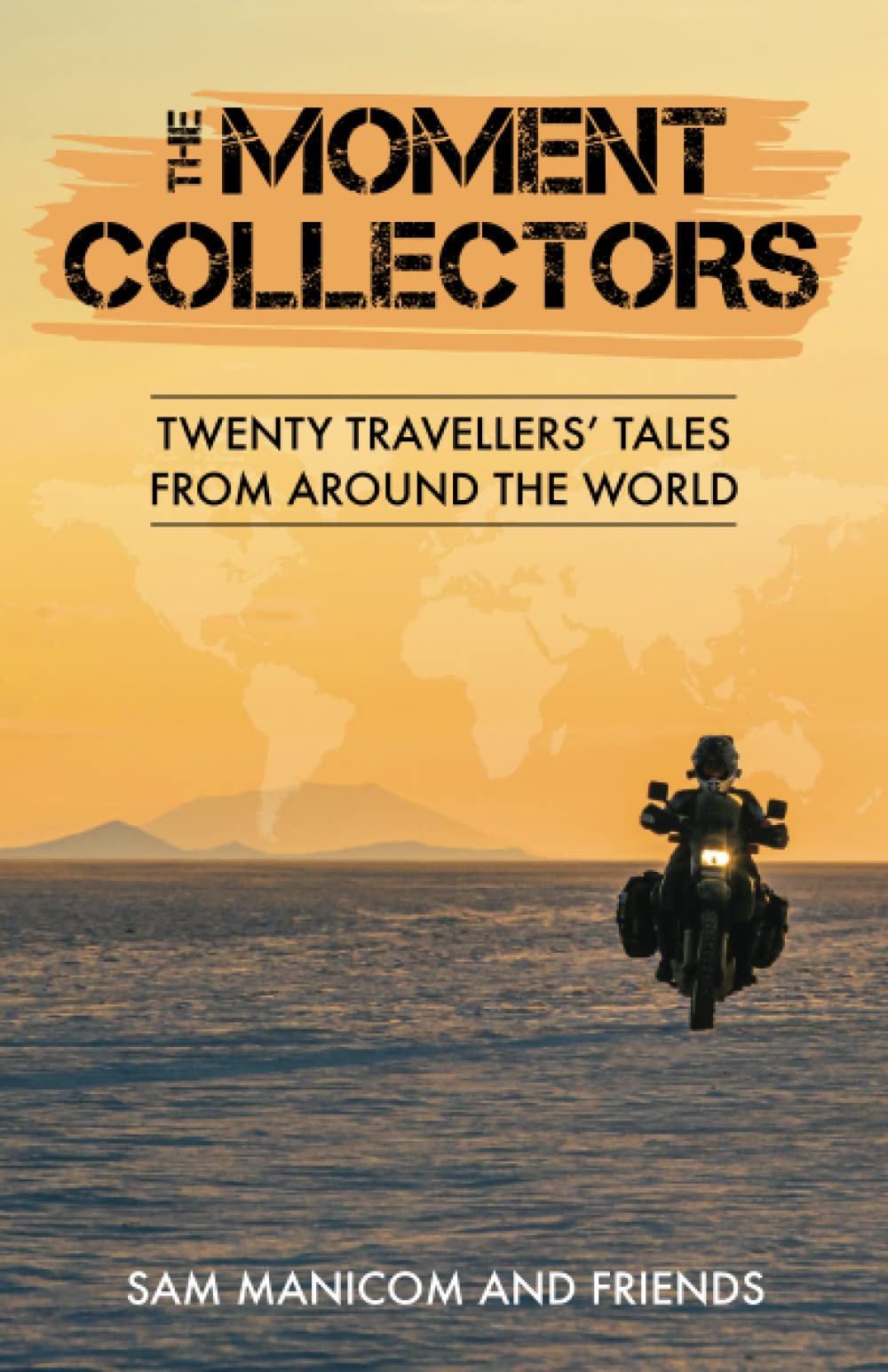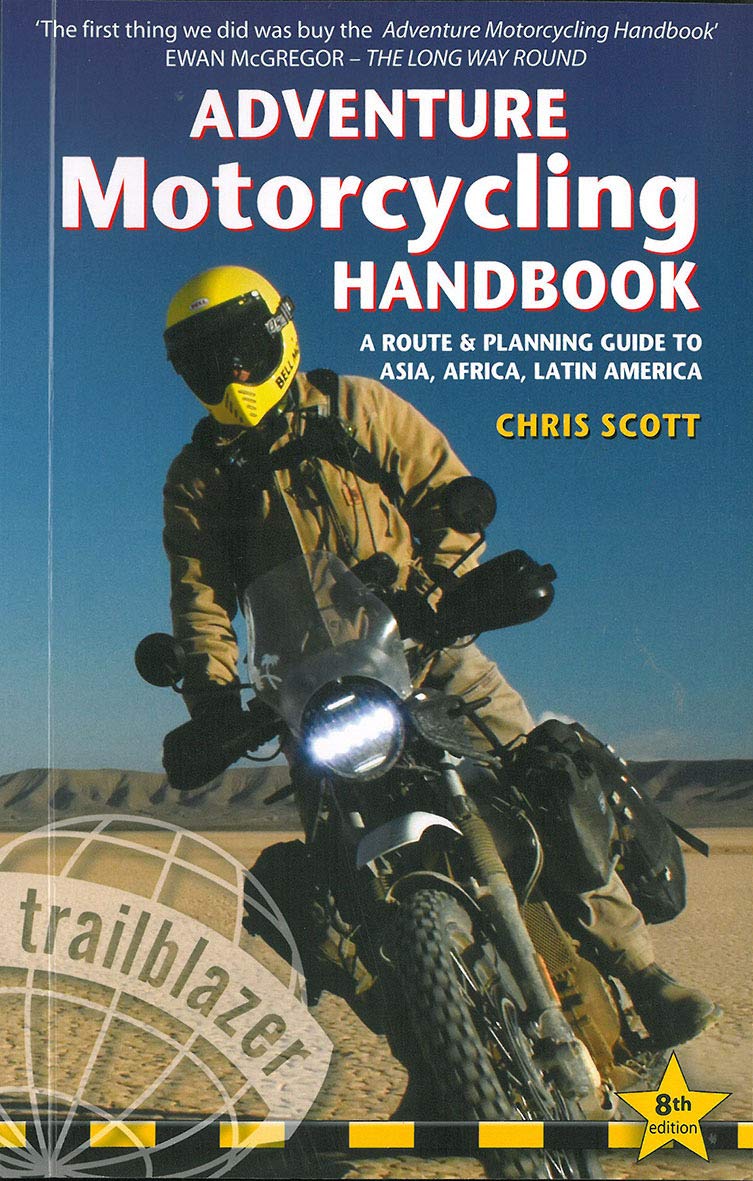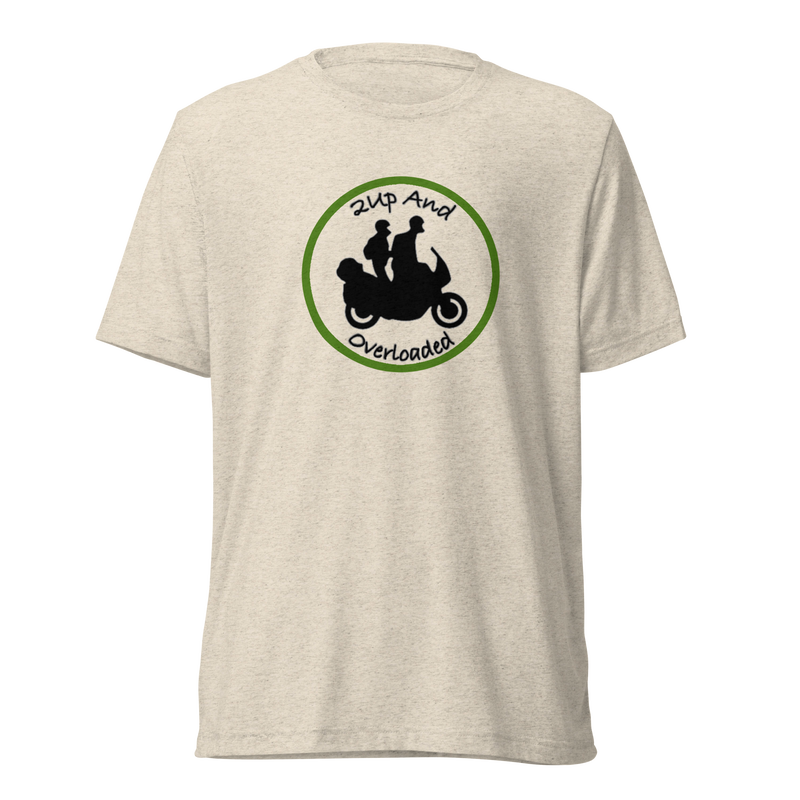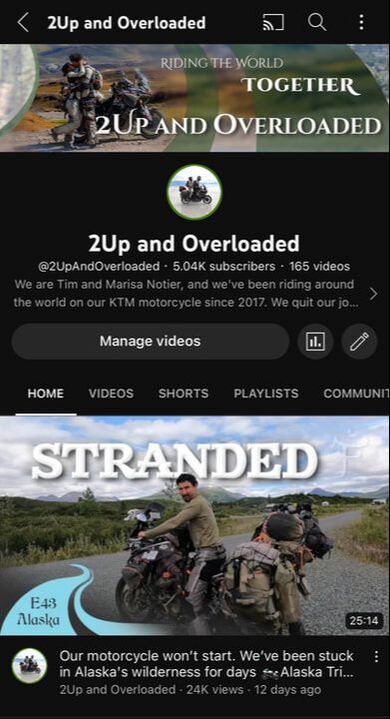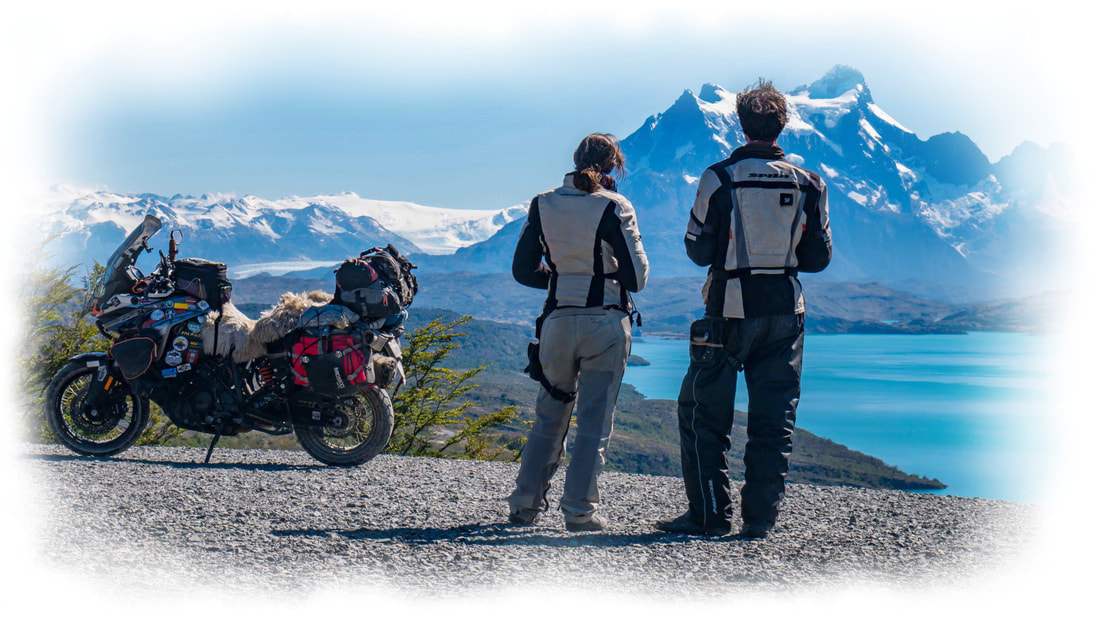By Marisa
I have rough camped in all sorts of places, but each and every time is a new experience. So I wanted to be sure we would have the proper equipment to do this in, and to start building the expertise to be confident we would survive the elements once we are out in the true wilds of the world, not just an hour from home. While testing our gear, I came up with a short check list that Tim and I should go through while on the road. 1) Do Your Research (when available)What I mean by this is first, figure out the laws concerning camping in the area you wish to go to, and make sure it's legal before you get out there. We never want to wake up to police writing us a citation, or a farmer with a shotgun yelling, Y'all best be moving along down the road now, ya hear? Second, check the weather. This may seem obvious, but mother nature can either make or break sections of the trip, and you don't want to assume anything. The first time I'd ever camped without a tent was in the sand dunes of Wadi Araba in Jordan. I remember wrapping myself in my blanket (it was actually a donkey saddle pad with a nice odor to it), looking up at the stars thinking, Ah, it's so nice there's no rain in the desert. But of course it rained on me that night, not terribly hard, but enough to make me think twice about my assumptions of weather. So never think you know, and look up the weather before you go. Delaying the next leg of the trip by a day or two may lead to a much more enjoyable continuation to the journey. And finally, check and double check your GPS and maps on where you're going. You don't want to turn your camping weekend into a camping month when you can't find your way out of there. 2) Worry about WaterBefore you go, purchase a water purifying pump, and then if at all possible, try to set up camp with a stream or spring nearby so that you'll have a constant supply of drinking water. And keep in mind that water is necessary not just for drinking, but also cooking, washing your hands, doing dishes, brushing your teeth... the cleaner you can stay while camping, the better you'll feel when there. If you're going to be in a place with no surface water, then you'll have to haul in your own. They say to bring at least eight liters of water per person per day, and from my own experience, this is no joke nor an exaggeration. Because in the right climate, such as a dry hot desert, I've gone through that in less than a day and felt I would die of thirst without more. And a lack of water is statistically the quickest way to die in the wilderness. Extra Tips: Drinking all your water at once will actually sustain you longer than taking little sips. Most lost hikers who die from thirst are found with a little water left in their canteens. To conserve water, travel at night, not day, and cover up when in the sun. 3) Plan Your Meals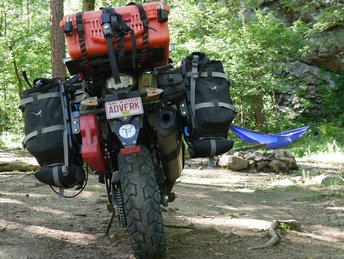 Unless you're a world champ fisherman, you may want to pack some food for your trip. And even if you are Garth the Gatherer, packing emergency reserves is wise, since I've heard horror stories about people who thought they'd catch what they needed, and then just ended up starving for two weeks in the woods. Very unwise. Dehydrated foods and MRE's are great and pack light. Rice, pasta, beans, and other dried foods can also be good, but just take into account the amount of water and fuel needed to cook them. Everyone loves a good hotdog roasted over the fire, but meats are only good for so long without refrigeration. I like to buy frozen foods in the morning, and usually they'll be thawed and perfect for cooking by dinner, but that's only good for day one. Other thoughts about food: pots and pans are huge, but a roll of tin foil and a few potatoes can go a long way. Any food and other smelly items (such as toothpaste, deodorant, soap) should be tied up in a tree at night to keep safe from raccoons and bears. So don't forget your twine or rope, and make sure the tree is far from your tent so you're not in a predator's way. 4) Think About Fuel for FireNo camping trip would be complete without a campfire. The majority of the time when in the wild, purchasing firewood will not be an option, so you'll be scrounging from the landscape. And if you're not in the right environment, your firewood foraging could add to the destruction of the nature that you're there for. What's worse, if it's too dry out, campfires can cause wilderness fires which are dangerous and may completely destroy vast sections of forest. You don't want to be the person on the nightly news who burnt down the park. Plus, you can be fined or even arrested for breaking a burn ban. So check those burn warnings before heading out, and bring what you need while keeping your fires cozy and small. 5) Learn How to Poop in the WoodsTim's biggest fear: pooping in the woods, and sorry, I don't really have a picture to show for this one. There is this myth and fear that Westerners who are used to toilets cannot poop while squatting. I had been told this before my first sojourn into the woods, and on the first night on the Appalachian Trail (which actually has some outhouses, but I didn't know at the time), I found a log, sat over it, and made a big mess of everything. Then I learned how to squat and the world was right once more. If you've never squatted in the woods before, practice at home by squatting with your feet flat (not baseball catcher style on your toes). But unless you have some squat toilet in your house or hole in the backyard you'd like to try out, the real deal is very hard to practice. But if you can muster the courage to squat while out in the wilderness, bring some toilet paper, and bring water and soap if you'd like, and you may find it's not so bad after all. Not nearly as bad as some bathrooms you've been in, I'm sure. Shovels are useful because nothing's worse than the smell of human feces. Plus, burying it feels a bit like flushing. Also if you can, try to burn your toilet paper, because as I found in the outback of Australia, every night dingoes would dig up our excrement-covered toilet paper and drag it all around camp, I have no idea why. And don't forget that you may pee at the same time as doing number two, so be prepared for that. I successfully potty trained Tim while in the woods, using the same encouraging words you would to a three year old. "Good job!" and "Did you remember to burry it?" and "I am so proud of you!" There are few things on this earth more stubborn than Tim, so if he can do it, the rest of you are a sure bet. 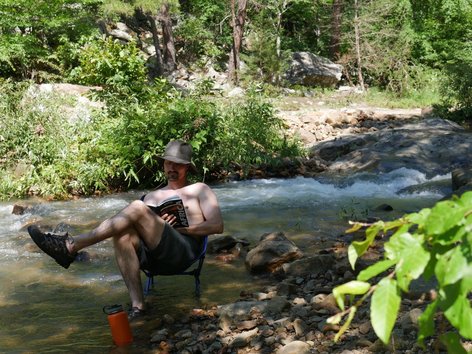 Those were my 5 most important tips for successfully rough camping. Please leave your comments below, tell us your mistakes, successes, and horror stories, and let me know if you have any more words of advice. Happy camping! Check out our short video highlighting the water and nature of our latest camping trip: roughing it in the Ouachita Mountains of Arkansas.
|
Follow UsRide with us from Chicago to Panama!
2Up and Overloaded Get inspired by the tale that started it all:
Maiden Voyage 20 author's tales of exploring the world!
The Moment Collectors Help us get 40 miles further down the road with a gallon of gas!
Become a Patron for early access to our YouTube Videos!
Subscribe to our YouTube Channel!
Subscribe to our Blog by Email
|
2Up and Overloaded
Join our clan of like-minded adventurers...
Proudly powered by Weebly
Designed by Marisa Notier

